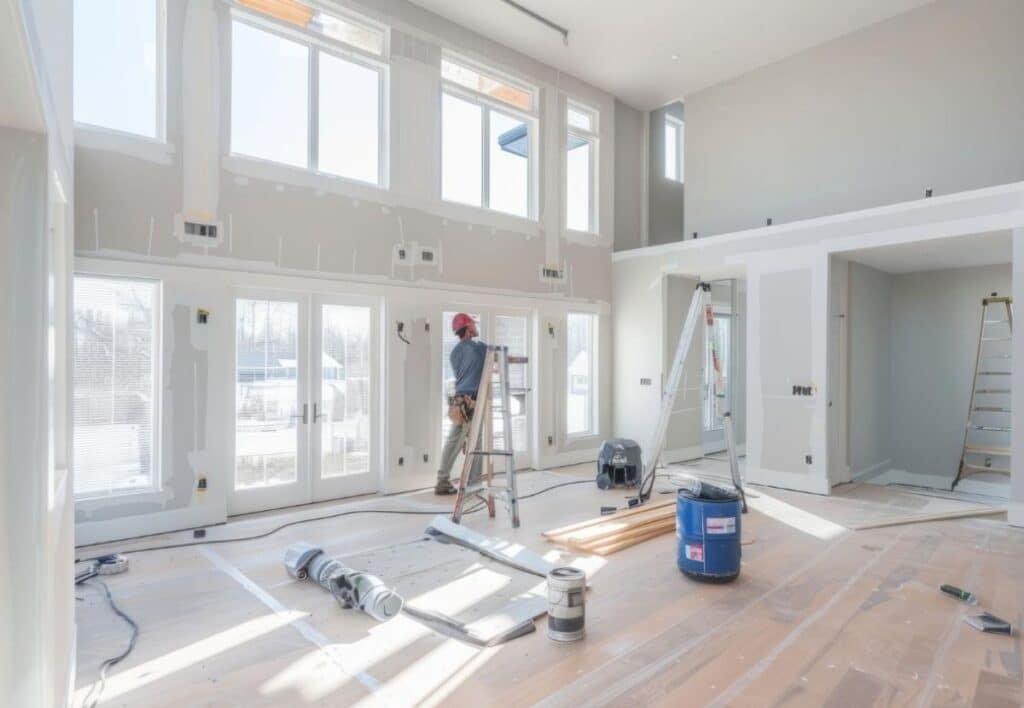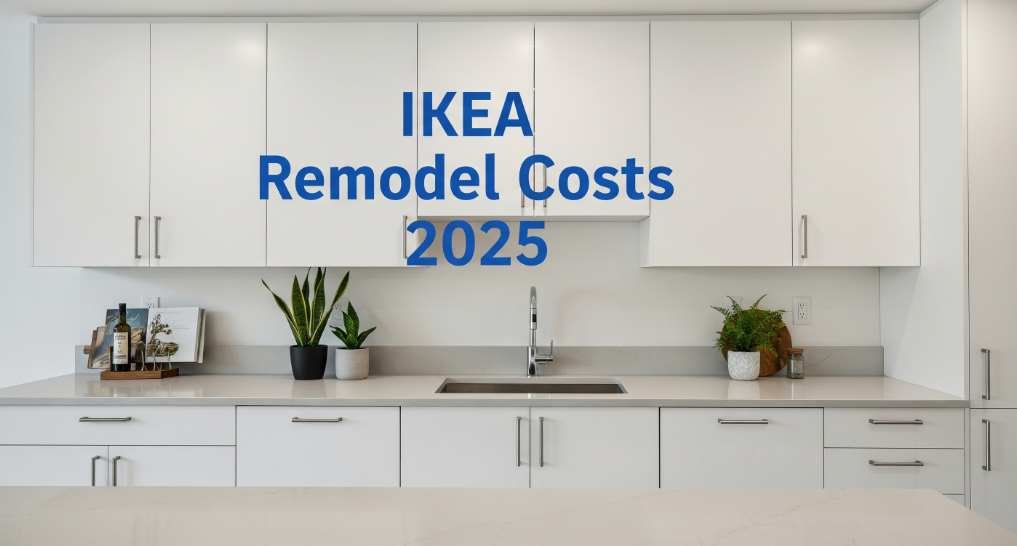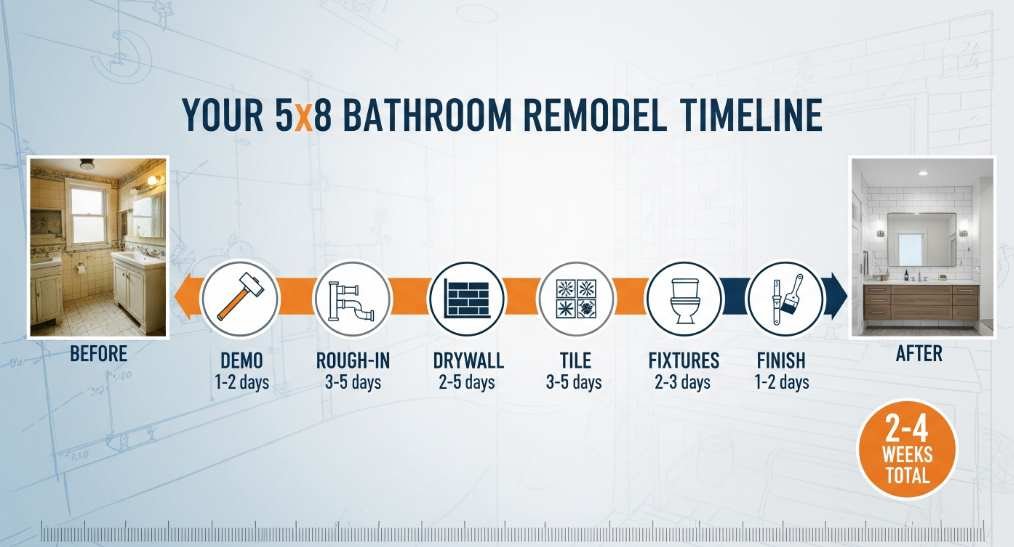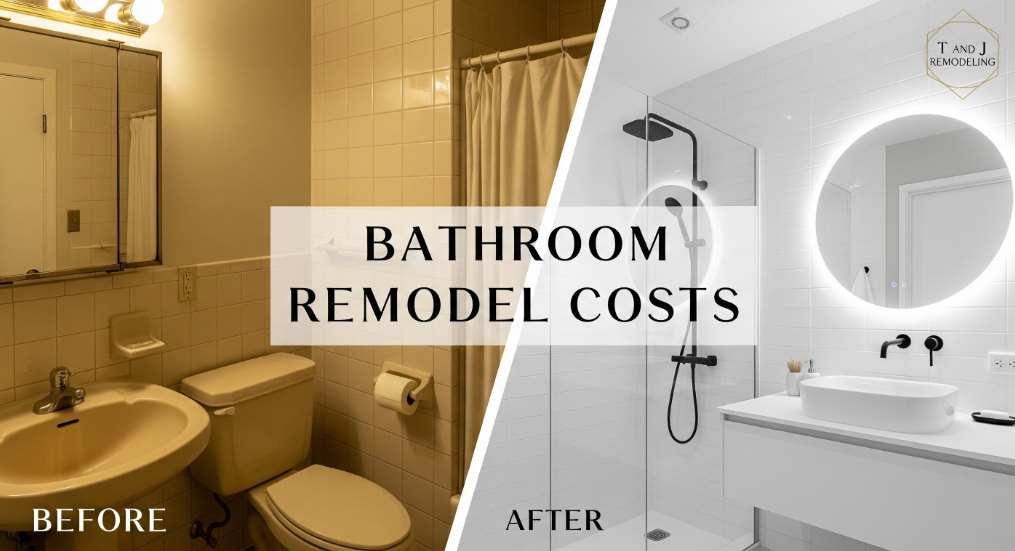Table of Contents
ToggleHome additions or moving to a larger home is a great option when the living space feels smaller. Home additions allow you to expand your current space to customize the home, improving home value. It is perfect if you love your neighbours and want to avoid the hassle of moving out.
Moving, on the other hand, offers a fresh start with more space and modern amenities. But it comes with moving expenses and the stress of adjusting and finding a new home.
Comparing Home Additions vs. Moving to a Larger Home for the space, cost, and ROI helps you determine the right choice. Consider long-term goals and financing before making the decision. For a detailed breakdown of potential project costs, use our home remodeling cost calculator.
What is a home addition?
A home addition involves expanding your current living space structure by adding new spaces such as bedrooms, bathrooms, second-story additions, cantilever additions, and others. The goal of a home addition is to increase space, improve functionality, and ensure comfort in the home.
What is moving?
Moving to a larger home means purchasing or renting a new property with more living space, potentially better amenities, and a better location. It involves packing the belongings, transporting them, and settling into a new location.
Which one is better: Home Addition vs Moving?
Space customization and consideration
Home additions allow you to customize the space. You can even maximize the vertical space if horizontal addition is not possible. A new house will not allow for customization and maximize the space. The customization is limited to what the new home offers.
Comparing Costs: Addition vs. Moving
The home addition cost involves renovation costs, foundation costs, extensive plumbing, and building permits. The total cost will be $12500-$250000 depending on the size, complexity, materials, and other factors. However, the cost is the initial installation cost.
Moving involves transaction costs, including the purchase price, closing costs, moving costs, and potential property taxes for a larger home. It also includes monthly costs like mortgage payments and increased property taxes. But if you are moving to a newly-built house of yours, the initial cost will be way higher than addition cost.
Time requirements
The time required for home addition is higher. It may take 2-4 weeks or even more to complete putting an addition on the house, depending on the size, complexity, and labor skill. Moving to a larger house does not require that much time if you find a new home and settle in quickly.
What are the Pros of Home Additions over moving to a larger home
- Always stay in the neighborhood where you grew up
- A perfect customization option, such as two car garages.
- Emotional attachment
- Allows you to create your dream home
- Cost-effective
- Improve the value of your home
- Save money on moving
Cons of Home Additions
- High initial Cost due to renovation
- Mild disruption to your regular life due to the construction
- Choosing the right contractor is a hassle
- Need to face zoning restrictions
What are the Pros of Moving to a Larger Home over a Home Addition
- You can avoid the stress of renovating the house
- A new place to explore and enjoy
- Get rid of bad neighbors if you have any
- Potentiality for Better Facilities
- No construction hassle
- Time-saving since you don’t have to renovate the house
Cons of Moving to a Larger Home
- The purchase price, closing costs, moving costs, and potential property taxes need to be paid.
- Hidden problems that you don’t know
- Finding the right house is a challenge
How do you hire a good contractor for a home addition?
To hire a good contractor for a home addition, follow the steps below.
- Search for the local home addition contractors on Google.
- Check their reviews and customer services, and get quotes.
- Compare the quotes and pick the most affordable yet experienced one.
- Ask for suggestions on social media and from friends and family.
- Pick the right contractor.
T and J All in Remodeling service is one the best home addition contractors in Southeastern Wisconsin. With our 35 years of experience in the kitchen, and bathroom remodeling and dedicated trained technicians, we understand your needs easily. The addition will be functional and aesthetic within your budget. So, contact us today. Or visit our office by getting directions from Google Maps.
Is it cheaper to add on or buy a new house?
Adding on a new house is cheaper and less time-consuming than buying a new house. However, the cost will vary depending on labor, complexity, and size. Sometimes, the addition cost can be higher than the cost of buying a new small house in an area where land or renovation costs are lower.
Is it expensive to add a second floor or an addition?
Yes, adding a second floor is more expensive than an addition since you need to remove the existing roof and start a completely new renovation. Besides, you need to relocate during the construction project, increasing the cost. Sometimes, you may need to lay down the foundation again to hold the weight of the second story.
Factors to Consider When Deciding Home Addition or Moving Out
Long-term Value Considerations
Consider the cost of living area, floor plan, property space, and quality of life in a new area. The cost involves initial investment, long-term costs, monthly costs, and potential savings.
Emotional connection
Are you emotionally attached to your current home? If so, it is better to add on to fulfill the space requirements.
Space Considerations
Evaluate the square footage of the existing home and check for potential expanding scope. If you do not have enough space to expand, consider adding a second story. Then, compare the cost of moving to a new house and adding a second story. Now, compare how each option affects the usable space, including common areas like the family room, living room, and additional bedrooms.
Financial Health
Evaluate the true cost of each option, such as renovation costs or moving costs. Do you need a home equity loan to fulfill the requirements? Stay away from the loan if possible.
FAQ For Home Additions vs Moving to a Larger Home
Can I construct a home addition on my own?
Yes, you can construct a home addition on your own. However, it will increase the cost, and you may end up with a broken house if you do not have previous experience. So it is better to leave the task to the professionals.
How challenging is it to build an addition to a house?
Building an addition onto a house is not that challenging if you can hire a good contractor. But if you hire an inexperienced contractor or want to do it yourself, the challenges are uncountable.
Does adding a home addition increase property value?
Yes, adding a home addition improves property value to a great extent. Make sure to use trending and functional amenities in your addition.
What is the cost of adding square footage to a house?
The average cost of adding square footage to a house is $80 to $300, depending on the size, complexity, materials, and labor costs.
How long does it take to complete a home addition?
It generally takes 2-4 weeks. However, the time may increase or decrease depending on complexity, size, and labor skills.
So, which one should you pick?
Home addition expands your house by adding rooms, extending floors, or enhancing areas like kitchens or bathrooms. This is a perfect option if you are too attached to your neighbors or want to customize your home. A well-planned addition will improve the functionality and value. But it involves significant costs, construction time, and the inconvenience of living through.
Moving to a larger home offers options like starting fresh, exploring new places, modern amenities, and new neighbors. This is better for people with a desire to move to a new place, start fresh, and utilize better school and health facilities. However, it involves realtor fees, moving costs, and potentially a higher mortgage. Now decide which one is better for you.





